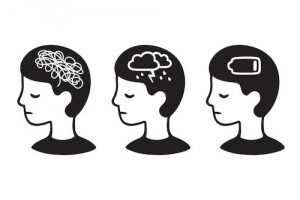Suchismita warns us about the growing mental health disorders among children. An exclusive for Different Truths.
 In a technologically advanced world where everyone seems to have expertise in the mechanism of gadgets and digital platforms, our children are also no different. Children nowadays are not spoonfed, rather it will be justifiable to say that they are cellphone-fed. Tiny minds are constantly indulging themselves in the alluring world of mobile screens. But the peril hidden in this is not noticeable to many. As the elders stay busy in their day-to-day hectic schedule, children are more prone to catch some sort of serious mental health disorders at such a small age.
In a technologically advanced world where everyone seems to have expertise in the mechanism of gadgets and digital platforms, our children are also no different. Children nowadays are not spoonfed, rather it will be justifiable to say that they are cellphone-fed. Tiny minds are constantly indulging themselves in the alluring world of mobile screens. But the peril hidden in this is not noticeable to many. As the elders stay busy in their day-to-day hectic schedule, children are more prone to catch some sort of serious mental health disorders at such a small age.
Children nowadays are not spoonfed, rather it will be justifiable to say that they are cellphone-fed. Tiny minds are constantly indulging themselves in the alluring world of mobile screens. But the peril hidden in this is not noticeable to many.
Mental disorders in children are quite common and sometimes the symptoms are severe. One-fourth of the children and teens face some sort of mental health problem once in any given year. The most common kind of mental disorders are anxiety disorders, attention deficit hyperactivity disorder (ADHD), depression, mood swings etc. ADHD affects school-aged children for 8-10%, Depression affects 2% during childhood and 4-7% during adolescence, affecting more than 20% adolescents till the time they reach their adulthood. In teenagers, more frequently,  than young children, addiction disorder, eating disorder, bipolar disorder, and even schizophrenia may grow and pester their minds.
than young children, addiction disorder, eating disorder, bipolar disorder, and even schizophrenia may grow and pester their minds.
Though it is not common as such, developmental disabilities like Autism Spectrum Disorder can impact for lifetime on the lifestyle of the sufferer and his/her family. Autism Spectrum Disorder is a developmental disorder that is noticed through abrupt communication, absurd social interaction and peculiar behavioural change. Statistics about Autism Spectrum Disorder show that 1 out of 59 children get affected by this disorder.
Children with severe mental illnesses may face some definite problems or symptoms that portray their particular disorder very well.
Children with severe mental illnesses may face some definite problems or symptoms that portray their particular disorder very well. Some symptoms are listed below:
1)Poor school performances,
2) Less concentration power,
3) Persistent boredom,
4) Frequent complaints of physical symptoms like headaches or stomach-aches or limb aches.
5) Appetite problems like eating either too little or too much,
6) Sleeping either too little or too much
7) Sleepwalking
8) Panicking or nightmares while sleeping
9) Aggressive Behaviours
10) Risk-taking behaviour or careless about one’s own life. ( Example – running into the street, throwing stuff in between a fight, climbing too high, or playing with unsafe items, cutting veins, etc)
11) Numbness for a particular issue
12) Emotional breakdown or absurd emotional change, etc.
This mental distress tends to have some biological, psychological and environmental risk factors to contribute to their development. Biologically, mental illness is the result of an imbalance of the neurotransmitters in our brains that impose the excessive secretion of serotonin or dopamine in some parts of the brain or their decreased secretion in other parts. According to a source, physicians notice depression or anxiety issues more in girls than boys and ADHD, autism etc disorders are assigned more in boys. Teens who carry mental disorders are more likely prone to have some biological risks like low birth weight, trouble sleeping, having a mother younger than 18 years old at the time of their birth.
Childhood mental distress may be a reaction to the environmental stresses including going through traumas like being the acute victim of verbal, physical or sexual abuse, school problems, death of a loved one, peer pressure, bullying, mockery etc or simply being a constant witness of the brawl between parents. Homosexual teens are more prone to develop mental health disorder in the thought of being bullied by peers or rejected by parents and society.
Mental illness calls perils for the children including having poor body image, low self-esteem, self insufficiency, restlessness, a tendency to be highly self-critical,  feeling helpless when negativities strike in the mind, etc. Childhood mental distress may be a reaction to the environmental stresses including going through traumas like being the acute victim of verbal, physical or sexual abuse, school problems, death of a loved one, peer pressure, bullying, mockery etc or simply being a constant witness of the brawl between parents. Homosexual teens are more prone to develop mental health disorder in the thought of being bullied by peers or rejected by parents and society. The children in the military family face one kind of a mental disorder and on the other hand, children belonging from the corporate workers face loneliness or suffocation in expressing their fears or feelings.
feeling helpless when negativities strike in the mind, etc. Childhood mental distress may be a reaction to the environmental stresses including going through traumas like being the acute victim of verbal, physical or sexual abuse, school problems, death of a loved one, peer pressure, bullying, mockery etc or simply being a constant witness of the brawl between parents. Homosexual teens are more prone to develop mental health disorder in the thought of being bullied by peers or rejected by parents and society. The children in the military family face one kind of a mental disorder and on the other hand, children belonging from the corporate workers face loneliness or suffocation in expressing their fears or feelings.
There are varieties of treatment available for children to overcome the difficulties of mental illness. Among them, different educational or occupational interventions, psychotherapy, counselling or specific forms of medications are such types of remedies available in our society. There are also some specific things that families of children need to do in terms of maintaining a good environment to cure their children’s mental health. To help the treatment get more effective, families need to keep a good track of the children’s adequate sleep, proper diet, adequate exercise as well as emotional support, care and love from the parents and teachers. It is better if guardians are recommended to make their children practice meditations at a regular basis which can result tremendously good in improving the mental state.
To help the treatment get more effective, families need to keep a good track of the children’s adequate sleep, proper diet, adequate exercise as well as emotional support, care and love from the parents and teachers. It is better if guardians are recommended to make their children practice meditations at a regular basis which can result tremendously good in improving the mental state.
Several medications and solutions will go in vain if we do not look after our children right from the beginning. Proper guidance also indulges the sound care of the emotional health of our children. With the ever-increasing modernisation, let’s not forget the morals and values to raise a child. With the acute love, patience and education, we can give them a better future to cure the world — a world which will see the face of beautiful emotional, mental and physical beings.
Photo from the Internet





 By
By
 By
By
 By
By